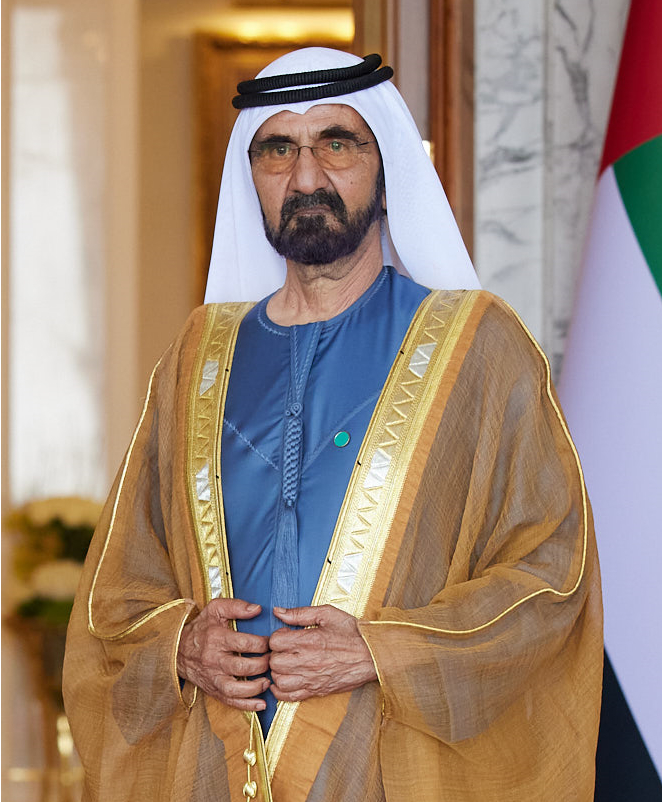Politics
United Arab Emirates Politics
This page explores United Arab Emirates political structure incorporating real-time RSS feed news and videos. By harnessing the power of RSS feeds, visitors can stay informed about the latest developments in United Arab Emirates politics as they happen. The dynamic nature of these feeds ensures that users receive up-to-the-minute updates on political events, policy changes, and significant milestones, enabling them to stay abreast of the ever-evolving political scene.

Mohammed bin Rashid Al Maktoum
Ruler of Dubai
Assumed office
6 January 2006
Image credit
The United Arab Emirates (UAE) uniquely merges traditional monarchy with modern governance within a federated structure of seven emirates: Abu Dhabi, Dubai, Sharjah, Ajman, Umm Al-Quwain, Fujairah, and Ras Al Khaimah. Each emirate is independently ruled but collectively, their monarchs form the Federal Supreme Council, which elects the nation’s President and Vice President, traditionally held by the rulers of Abu Dhabi and Dubai respectively. This setup ensures leadership roles for the most influential emirates and maintains a balance of power.
At the federal level, the UAE combines executive, legislative, and judicial branches with a monarchic influence. The executive branch, led by the President and Vice President, governs with a Council of Ministers, while the Federal National Council serves an advisory legislative role. The judiciary operates under Islamic legal frameworks but strives for independence.
Despite its centralized power structure, the UAE has made strides towards incorporating elements of civic participation and governance reform. Initiatives aimed at empowering the FNC, enhancing judicial transparency, and promoting government accountability suggest a gradual evolution in governance practices. Moreover, the leadership’s commitment to economic diversification, technological innovation, and international diplomacy underscores the UAE’s ambition to position itself as a global player while navigating the complexities of modern statecraft and traditional monarchy. This balancing act between heritage and modernity defines the UAE’s government, mirroring the broader societal transformation underway in this dynamic federation.
Top 10 Longest-Range Electric Cars for 2024https://t.co/gKywi3LTZb
— Emirates 24|7 (@Emirates247) May 10, 2024
Unless other sources are listed, original content is provided by ChatGPT. ChatGPT may produce inaccurate information about people, places, or facts. #United Arab Emirates #United Arab EmiratesPolitics #United Arab EmiratesNews #United Arab EmiratesNewsToday #United Arab EmiratesRSSFeed #BlahFace



